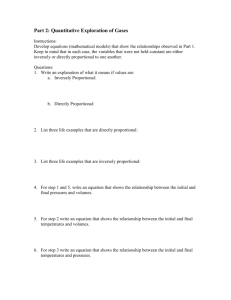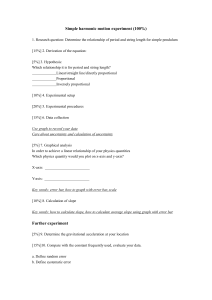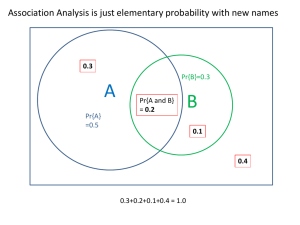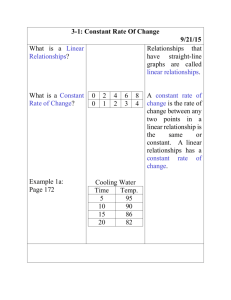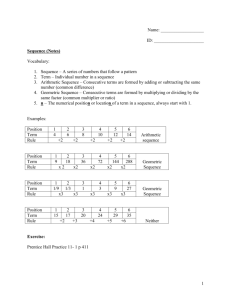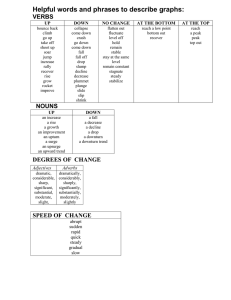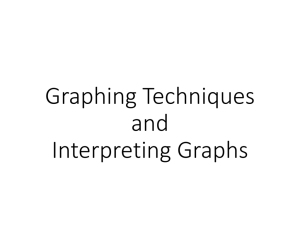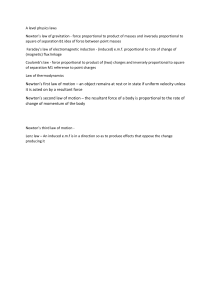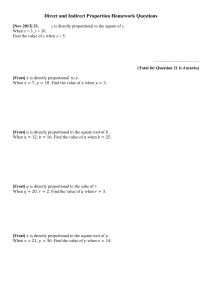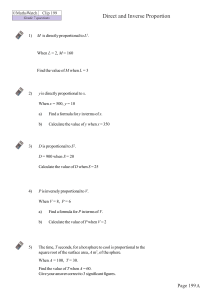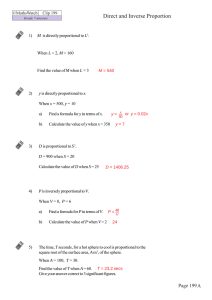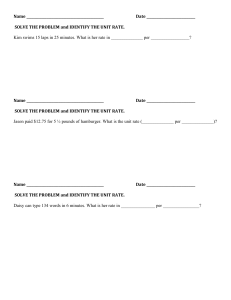Graphical Methods Summary: Interpreting Graphs & Relationships
advertisement
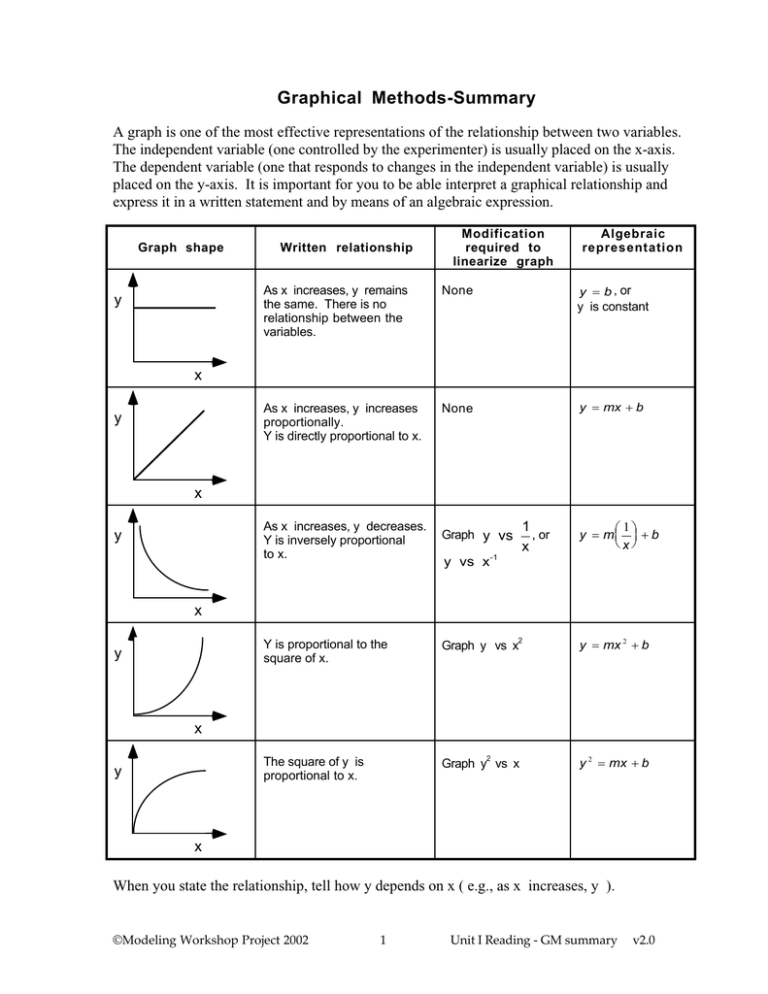
Graphical Methods-Summary A graph is one of the most effective representations of the relationship between two variables. The independent variable (one controlled by the experimenter) is usually placed on the x-axis. The dependent variable (one that responds to changes in the independent variable) is usually placed on the y-axis. It is important for you to be able interpret a graphical relationship and express it in a written statement and by means of an algebraic expression. Graph shape y Written relationship Modification required to linearize graph As x increases, y remains the same. There is no relationship between the variables. None As x increases, y increases proportionally. Y is directly proportional to x. None Algebraic representation y = b , or y is constant x y y = mx + b x As x increases, y decreases. Y is inversely proportional to x. y Graph y vs 1 , or x 1 y = m + b x y vs x-1 x y Y is proportional to the square of x. Graph y vs x2 y = mx 2 + b The square of y is proportional to x. Graph y2 vs x y 2 = mx + b x y x When you state the relationship, tell how y depends on x ( e.g., as x increases, y ). ©Modeling Workshop Project 2002 1 Unit I Reading - GM summary v2.0
